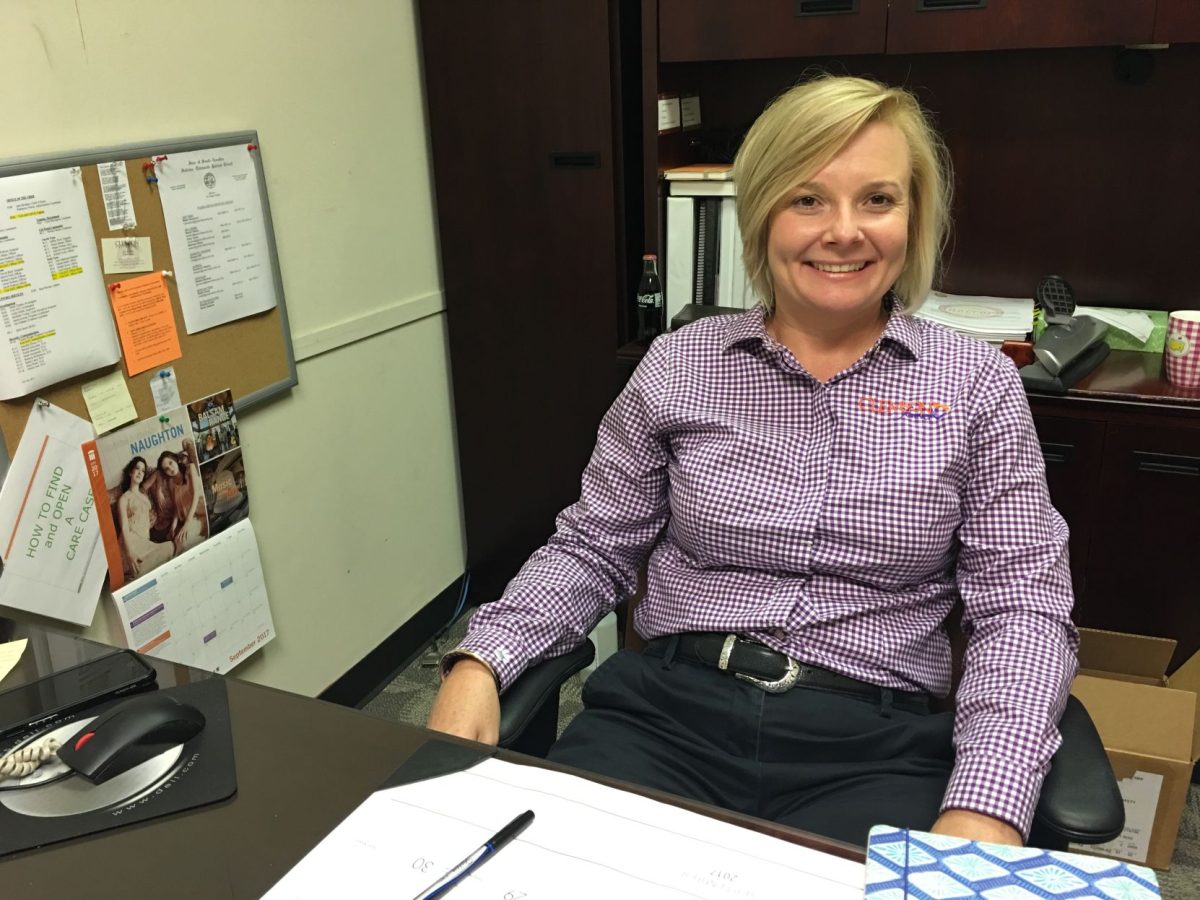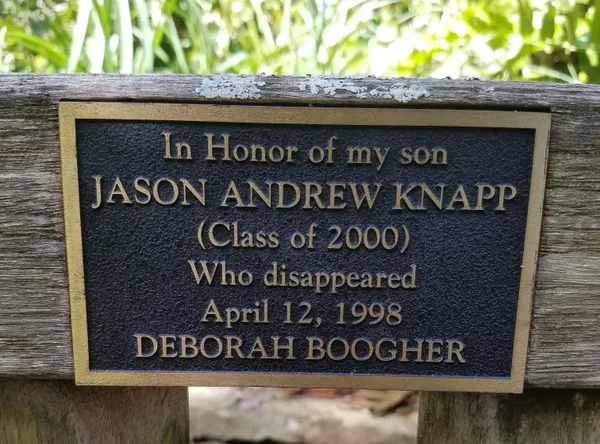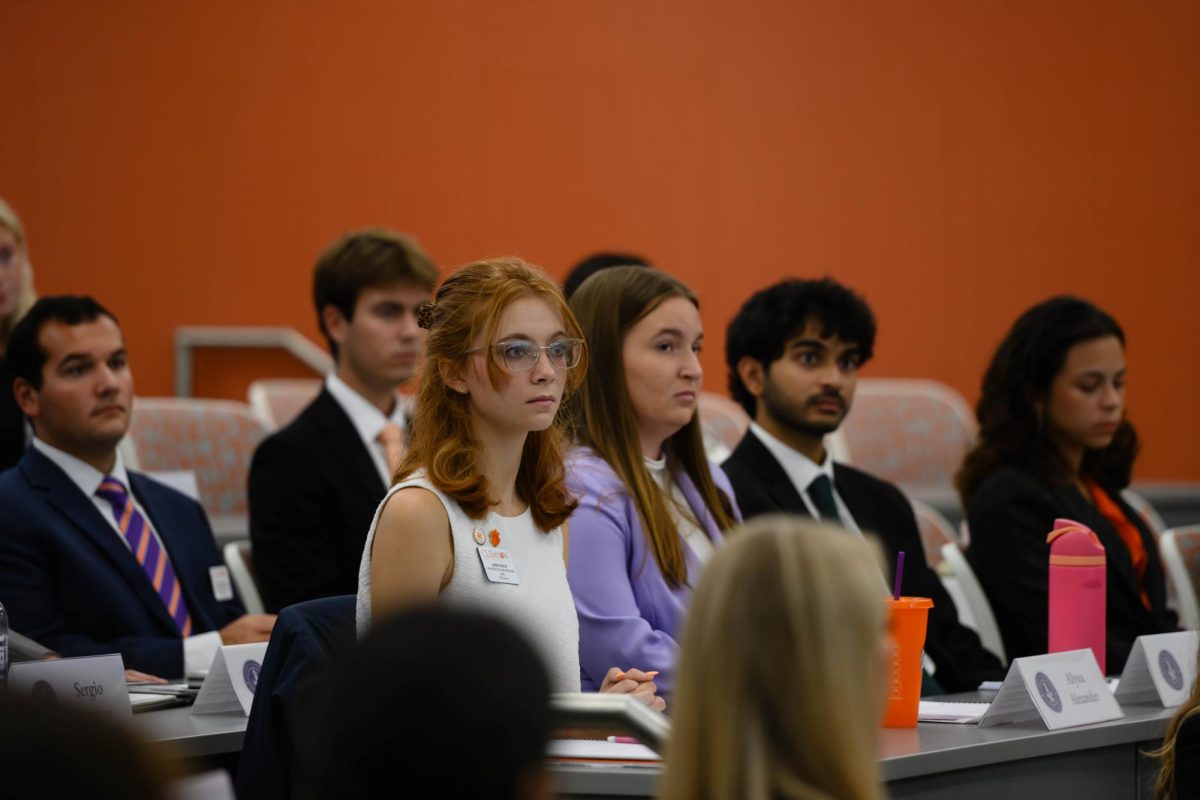As a psychology major at Southern Wesleyan University, Chief Jami Brothers dreamed of becoming a forensic psychologist like the protagonists she saw in crime movies.
Brothers then quickly realized forensics is a field requiring a few more years of education than she was willing to get. But she didn’t abandon her dream of law enforcement.
After graduating from Southern Wesleyan in 1996, Brothers applied to be a dispatcher for the Anderson County Sheriff’s Office (ACSO).
“I just thought, ‘I’ll get my feet wet,’” Brothers said.
And 20 years later, Brothers became chief of the Clemson University Police Department (CUPD) on May 22, 2017.
Brothers, who grew up in Pendleton, has a whispery, subdued voice with a hypnotizing accent eerily similar to the West Virginia drawl Jodi Foster has in the 1991 film Silence of the Lambs. The likeness gets even more eerie given her pronounced jawline and past dream of being a forensic psychologist.
Foster played Clarice Starling, an FBI trainee in Quantico’s Behavioral Analysis Unit.
“Yep, you can go ahead and say it: Clarice,” Brothers said in her CUPD office next to Memorial Stadium. “I’ll go to trainings and about the third day in, somebody will say, ‘Silence of the Lambs,’ and I’m like, ‘Yeah, yeah, yeah.’”
But the resemblance ends there. While Foster plays a fictional character acting as a law enforcement officer, Brothers is one in real life and has the experience to show for it. About a year and half into her dispatcher position, Brothers entered the police academy.
Brothers spent a decade with Anderson County as a deputy before joining the ranks at Clemson. She started as a uniform patrol officer and moved up the ranks to compliance and accreditation officer, operations captain and now chief after former Chief Eric Hendricks retired from CUPD last December.
Brothers told The Tiger the “service aspect” of law enforcement attracted her to the field. The calls civilians might think of as ‘exciting,’ she said, were in the grand scheme of things “few and far between.”
“The times I really felt the most satisfied in this work was when no matter what the situation was, when I left that scene I felt like I left them there better than I found them,” Brothers said. “And I think campus law enforcement offers more opportunities for helping.”
Whether officers are unlocking an office for someone who locked themselves out at one in the morning or getting fans in and out of Death Valley so they make it home safely, Brothers sees CUPD as a service oriented organization.
The police department has strived to maintain the ideal of service by holding summits on issues important to students. Three years ago the department addressed alcohol and drugs, the next year sexual assault and in March mental health.
Mental health is especially on the mind of Brothers given the increase of mental illness in college students nationally. According to a 2016 report by the Center for Collegiate Mental Health at Penn State University, there was a 50 percent increase in college students seeking mental health services between 2015 and 2016.
Brothers said CUPD has noticed an uptick in mental illness at Clemson.
“In 2015 and 2016, the training was a direct result of being asked to go and check on students who were potentially showing signs of distress, depression or anxiety,” Brothers said. “Those numbers started to rise, and with that we started training more and more dealing with students in crisis.”
The recent focus on mental illness by CUPD is especially relevant after police say a Georgia Tech University police officer shot and killed student Scout Schultz on Sept. 16.
Georgia Tech’s student newspaper, The Technique, reported an open records request by the Atlanta Journal-Constitution alleged Schultz left three suicide notes in their room before calling the police at 11:17 p.m. and describing a person fitting the appearance of Schultz holding a knife and possibly a gun.
Video footage shows officers backing away from Schultz while asking them to drop the knife, according to The Technique. Schultz told officers to shoot them, and after one minute GTPD officer Tyler Beck fired one round, hitting Schultz in the chest.
“Records appear to show that Beck did not have training in crisis intervention,” The Technique said.
Schultz died at Grady Hospital later that night.
Brothers said “it’s too early to judge” what happened at Georgia Tech that night.
“I think it’s fair to everyone involved to sort of hold onto your judgment until all the facts are available to the public,”
Brothers said. “Obviously there were people who were witnesses to [the shooting]. I think interviewing those folks and interviewing them well are important.”
Brothers said police should conduct multiple interviews of anyone who witnessed or was near the incident, even someone who only heard the gunshot. And according to Brothers, people who have experienced a traumatic situation need a few days to process what happened.
“I think it’s worth giving [witnesses] an opportunity to speak and give an account of what they witnessed,” Brothers said. “And that shouldn’t happen in an evening. It really shouldn’t.”
Brothers added any mental health training dealing with people in crisis involves de-escalation, how to calm a situation down and get people the help they need. But it doesn’t always work.
“Part of de-escalation is it’s not a one-way thing, so there are those times when … it’s not successful,” she said.
So far, Brothers’ short tenure as chief has been uneventful in the best way possible. Brothers started right after May graduation when most students leave and campus quiets down. The department does much of its training over the summer, but Brothers was anxious for August.
“I was ready for the students to get back, ready for football and ready to get back into the routine of things,” Brothers said. “I’m one of those who tends to do better when I have a routine to be in.”
Although she has been in law enforcement for two decades, Brothers still felt the weight of heading the police department for a top 25 public school and defending College Football Playoff National Champions when she learned she got the job.
“I was certainly honored but then also I just knew what the responsibilities were,” Brothers said. “When you think of everything Clemson University is involved in and how this community touches the world, it does sort of make you stop, take a step back and say, ‘Wow.’’’
Categories:
New Clemson police chief ‘honored’ to serve campus
Justin Lee Campbell, Contributor
September 25, 2017
Justin Lee Campbell//Staff
Clemson University’s new Chief of Police Jami Brothers considers mental health among students a top priority. Given the national uptick in mental illness among college-age people, Brothers said crisis-intervention is an important component of police training at Clemson.
0
Donate to The Tiger
Your donation will support the student journalists of Clemson University. Your contribution will allow us to purchase equipment and cover our annual website hosting costs.
More to Discover









